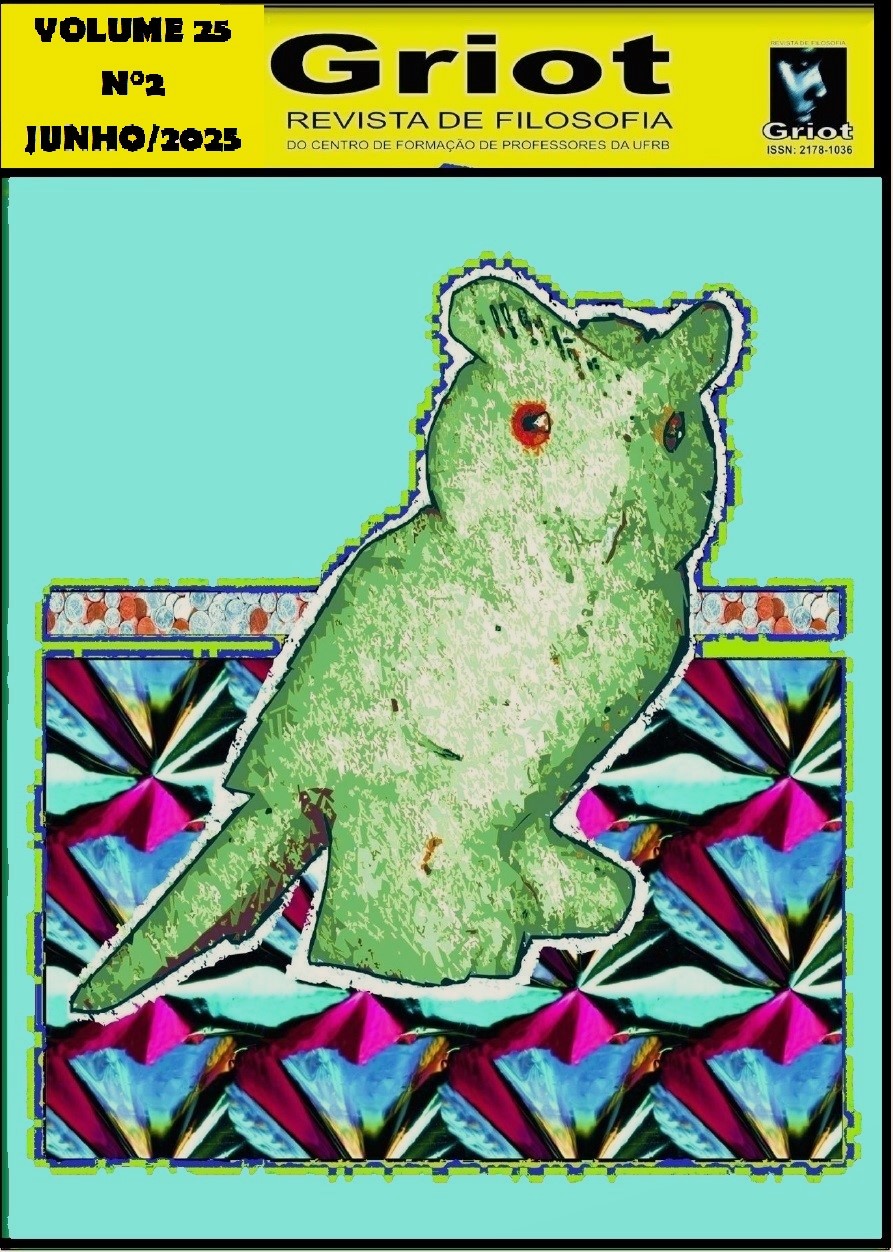The phenomenological journey of forgiveness in Paul Ricœur
DOI:
https://doi.org/10.31977/grirfi.v25i2.5323Keywords:
Forgiveness; Reconciliation; Memory; Abundance; Equivalence; Feeling.Abstract
This article proposes a phenomenology of forgiveness, drawing primarily on the reflective dynamic developed by the French philosopher Paul Ricœur. We situate the question of forgiveness within a broader thematic framework: the problem of evil. The eruption of evil, which takes concrete form in the ruptures and wounds of human relationships, compels us to seek responses. Thus, we ask how fractured bonds can be restored without reducing forgiveness to a juridical logic governed by the principle of equivalence. Our hypothesis is that forgiveness belongs to a logic of abundance. In this sense, it not only breaks with the logic of retribution but also possesses the power to offer a future to the the past. Forgiveness would not present itself as an instant solution but rather as a creative force capable of reconfiguring history and rebuilding relationships on a new foundation.
Downloads
References
ABEL, Olivier ; PORRE, Jean. Le vocabulaire de Paul Ricœur. Paris: Ellipse, 2009.
AIME, Oreste. Senso e essere: la filosofia riflessiva de Paul Ricœur, Assisi: Citadella Editrice, 2007.
ALICI, Luigi. Il paradosso del potere. Milano: Vita e Pensiero, 2007.
AMHERDT, François. L’herméneutique philosophique de Paul Ricœur et son importance pour l’exégèse biblique, Paris: Cerf, 2004.
ANGELO, Bruno. Inquietudine della coscienza. Saggio sul pensiero esistenziale di Jean Nabert, Milano: Mimesis, 2008.
AVERSA, Luigi. Paul Ricœur e il senso del tragico della via lunga in IANNOTA, Daniella. Paul Ricœur in dialogo: Etica, giustizia, convinzione., Torino: Effatà Editrice, 2008, p. 180-195.
BENSO, Silvia. Pensare dopo Auschwitz, Etica filosofica e teodicea ebraica, Napoli: ESI, 1992.
BORGES, Maria. História e metafísica em Hegel: sobre a noção de espírito do mundo, São Paulo: EDIPUCRS, 1996.
BRUGGIATELLI, Vereno. Potere e riconoscimento in Paul Ricœur: Per un’etica del superamento dei conflitti, Trento: Tangram Edizioni, 2008.
CUCCI, Giovanni. Ricœur oltre Freud: L’etica verso un’estetica. Napoli: Assisi, 2007.
D’AQUINO, Tommaso. Somma Teológica, Bologna: ESD, 1974.
DOSSE, François. Paul Ricœur, Le sens d’une vie. Paris: La Découverte, 2001.
DOSSE, GOLDESTEIN, C. (ed.), Paul Ricœur: penser la mémoire. Paris: Seuil, 2013.
DUFFY, Maria. Paul Ricœur’s Pedagogy of Pardon: A Narrative Theory of Memory and Forgetting. New York: Continuum, 2012.
GALLO, Mario. Perdonare e perdonarsi in TASSINARI, Paulo. L’anello perduto, Cantalupa: Effatà Editrice. 2011, p. 97-116.
GIAMBETTI, Andrea. Ricœur nel labirinto personalista. Milano: Vita e Pensiero, 2013.
GILBERT, Paul. Sapere e sperare: percorso di metafisica. Milano: Vita e Pensiero, 2003.
GREISCH, Jean. Paul Ricœur: l’itinérance du sens. Grenoble: Millon, 2001.
HARTMANN, Nikolai. Metafisica dei costumi. Napoli: Guida, 1972.
KHEL, Maria Rita. Ressentimento. São Paulo: Boitempo Editorial, 2007.
KOSELECK, Reinhart. Futuro Passado, Contribuição à semântica dos tempos históricos, Trad. Wilma Patrícia Maas, Carlos Almeida Pereira. Rio de Janeiro: Ed. PUC Rio, 2006.
NAULIN, Paul. Le problème de Dieu dans la philosophie de Jean Nabert, Presses Universitaires Blaise-Pascal, Clermont: PU Clermont, 1980.
NEBULONI, Roberto. Riflessività e coscienza simbolica. Milano: Vita e pensiero, 2006.
RECALCATI, Massimo. Il complesso di Telemaco, Genitori e figli dopo il tramonto del padre. Milano: Feltrinelli, 2013.
RECALCATI, Non é più come prima: elogio del perdono nella vita amorosa. Milano: Raffaelo Cortina Edittore, 2014.
RICŒUR, Paul. Histoire et vérité. Paris: Seuil, 1967.
RICŒUR, La critique et la conviction, entretien avec Azouvi, F., De Lunay, M. Paris: Calman-Levy, 1995.
RICŒUR, Paul. O si-mesmo como outro, Trad. Ivone C. Benedetti. São Paulo: Martins Fontes, 2001.
RICŒUR, Paul. Parcours de la Reconnaissance, Paris: Stock, 2004.
RICŒUR, Paul. O justo, I Trad. Ivone C. Benedetti. São Paulo: Martins Fontes, 2009.
RICŒUR, Paul. Le conflit des interprétations, Essais d’herméneutique, Paris: Seuil,1969.
RICŒUR, Paul. Leituras 2: a região dos filósofos, Trad. de M. Peryne. São Paulo. Loyola, 1996.
RICŒUR, Paul. La critique et la conviction, entretien avec Azouvi, F., De Lunay, M., Paris : Hachette, 1995.
RICŒUR, Paul. Amour et justice, Paris: Seuil, 2010.
RICŒUR, Paul. Ricordare, dimenticare, perdonare, Bologna: Il Mulino, 2004.
RICŒUR, Paul. Anthropologie philosophique, écrits et conférence. Paris: Seuil, 2013.
RICŒUR, Paul. A memória, a história, o esquecimento, Campinas: Ed. da Unicamp, 2018.
TUROLDO, Fabrizio. Libertà, giustizia e bene nel pensiero di Paul Ricœur in VIGNA Carmelo. Libertà, giustizia e bene in una società plurale. Milano: VP, 2003. p. 455-474.
Downloads
Published
How to Cite
Issue
Section
License
Copyright (c) 2025 Wellington Pires

This work is licensed under a Creative Commons Attribution 4.0 International License.
The authors who publish in Griot: Revista de Filosofia maintain the copyright and grant the magazine the right of first publication, with the work simultaneously licensed under the Creative Commons Attribution 4.0 International License, allowing sharing and adaptation, even for commercial purposes, with due recognition of authorship and initial publication in this journal. Read more...









































































